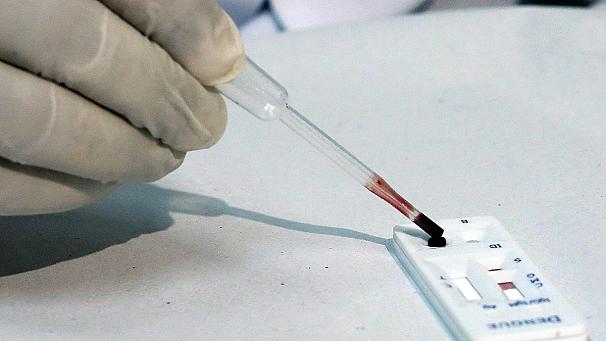-
Tips for becoming a good boxer - November 6, 2020
-
7 expert tips for making your hens night a memorable one - November 6, 2020
-
5 reasons to host your Christmas party on a cruise boat - November 6, 2020
-
What to do when you’re charged with a crime - November 6, 2020
-
Should you get one or multiple dogs? Here’s all you need to know - November 3, 2020
-
A Guide: How to Build Your Very Own Magic Mirror - February 14, 2019
-
Our Top Inspirational Baseball Stars - November 24, 2018
-
Five Tech Tools That Will Help You Turn Your Blog into a Business - November 24, 2018
-
How to Indulge on Vacation without Expanding Your Waist - November 9, 2018
-
5 Strategies for Businesses to Appeal to Today’s Increasingly Mobile-Crazed Customers - November 9, 2018
What to know about the tropical Zika virus in Latin America
FILE – In this January 18, 2016, file photo, a female Aedes aegypti mosquito acquires a blood meal on the arm of a researcher at the Biomedical Sciences Institute in the Sao Paulo’s University in Sao Paulo, Brazil.
Advertisement
Zika is transmitted by the Aedes aegypti mosquito, which is also known to carry the dengue, yellow fever and Chikungunya viruses.
Soldiers will fan out to homes across Brazil distributing leaflets and dispensing advice, Health Minister Marcelo Castro was quoted as saying by the newspaper O Globo, signaling a major ramping up of efforts against the Zika virus.
The mosquito-borne Zika virus, suspected of causing brain damage to babies in Brazil, is likely to spread to all countries in the Americas except for Canada and Chile, the World Health Organization said.
The virus, which already has appeared in 21 countries in the Americas, can lead to fever and rash. The Zika virus is especially a concern to pregnant women because the virus can cause a birth defect called microcephaly. The Guardian reported, “Many fetuses with the condition are miscarried, and many others die during birth or shortly after”.
He also said the mosquito that carries Zika has also been identified in Texas, Florida and the gulf states, so it’s possible to contract the virus there as well.
Officials at Olympics venues in Rio de Janeiro say they will undergo inspections every day to prevent the virus from spreading at this summer’s games.
Women in a number of Latin American countries are being asked to consider postponing pregnancies due to the Zika outbreak.
Around 4,000 cases of microcephaly have been associated with the virus in Brazil.
Though the connection between the Zika virus and microcephaly has not been definitely proven, health organizations suspect and are investigating a possible link.
The biggest danger is for pregnant women, as the body of evidence linking the Zika virus with microcephaly increases.
There is no sure prevention or treatment for the disease and affected countries are reportedly doing their best to eliminate the breeding grounds for mosquitoes.
The original list of countries on the CDCs list includes Brazil, Colombia, El Salvador, French Guiana, Guatemala, Haiti, Honduras, Martinique, Mexico, Panama, Paraguay, Suriname, Venezuela, and Puerto Rico.
The California Department of Public Health has also confirmed five cases of the Zika virus in the state, all from people infected outside of the U.S.
“We’d like to suggest to all the women of fertile age that they take steps to plan their pregnancies, and avoid getting pregnant between this year and next”, said Deputy Health Minister Eduardo Espinoza.
Advertisement
A pregnant woman waits to be attended at the Maternal and Children’s Hospital in Tegucigalpa.





























